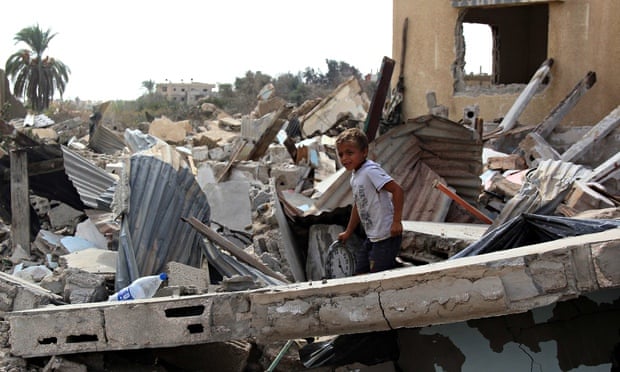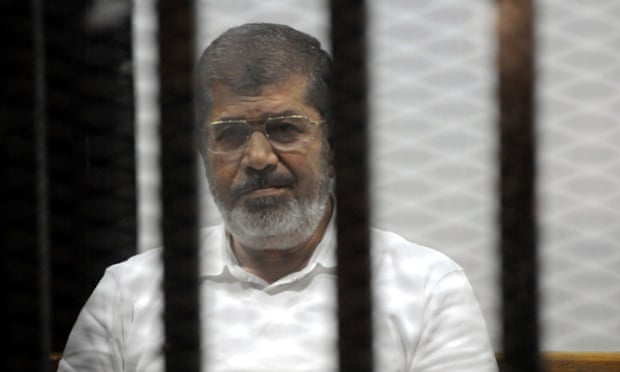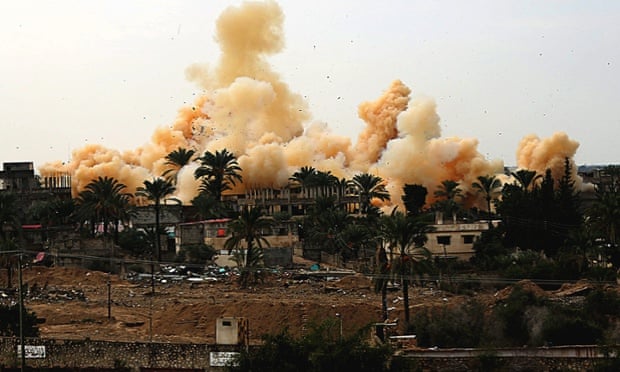
The Qawadis army checkpoint near Sheikh Zuweid sits at an intersection a few miles from Egypt’s border with Israel, in the Sinai peninsula. A handful of tents line a winding desert road that soon dips out of sight behind the sand dunes. Perhaps the dunes blocked the view of the troops stationed at Qawadis last month as a pickup truck careered towards them.
The truck was driven by a suicide bomber and, when its load exploded, the blast was heard at least 10 miles away. In the ensuing mayhem, locals claim, masked militants emerged on motorbikes. Showing no mercy, they gunned down any injured soldiers they found, and used a rocket-propelled grenade to attack the army reinforcements who arrived a few minutes later.
“Some soldiers tried to hide in nearby houses, and one villager took three injured soldiers on his cart,” said a local source. “But the attackers found them, killed the three soldiers and shot the villager in his leg.”
By the time the militants made their escape, at least 30 people had been mortally wounded. It was one of the bloodiest attacks on the Egyptian army in its peacetime history.
A national frenzy followed and the government seized the chance to tighten its authoritarian grip, placing large parts of Egypt’s civilian infrastructure undermilitary jurisdiction. In an atmosphere of nationalist fervour, private and state media championed the move, with the editors of 17 newspapers signing a statement in which they agreed to report only positively about Egypt’s often-criticised army, police and judiciary.
“A state of hysteria has taken over Egypt’s psyche and dominated any semblance of rational thought,” wrote Khaled Dawoud, a prominent member of the secular opposition.
The attack has brought to the fore an under-reported jihadi insurgency that has bubbled away in the north-eastern corner of the Sinai desert for several years, but rapidly escalated after the July 2013 overthrow of Mohamed Morsi, Egypt’s Islamist former president.

For months, Morsi’s successors have both overplayed and downplayed the threat, highlighting the conflict to foreign audiences to justify Egypt’s curbs on democratic freedoms, while telling Egyptians that the insurgency is under control and many of its leaders arrested or killed.
The attack in October made the reality difficult to deny. But, with journalists banned from the marginalised region, it also highlighted how little is known about the whereabouts and backgrounds of the jihadis, who mostly belong to a group called Ansar Beit al-Maqdis (ABM); their relationship to local residents and other extremist groups in Syria and Gaza; and the state’s heavy-handed counterinsurgency.
Last week at least, the government’s response was clear. First, President Abdel Fatah al-Sisi imposed a curfew and a state of emergency on the affected region. Then he ordered the destruction of hundreds of homes skirting Sinai’s border with Gaza.
It was the latter move that drew the most fury from the government’s critics. About 800 households in Rafah were given 48 hours to leave, before soldiers began to blow up their homes.

For years, smugglers have used tunnels leading from some of these houses to take goods – and sometimes weapons – into Gaza. Last week, the government’s allies briefed that Gazan militants had come back the other way to attack the soldiers at Qawadis.
“Of course, [the militants] have direct links with Hamas,” said Sameh Seif Elyazal, a retired general who worked with Sisi in military intelligence. “In the last operation on Friday, a few operatives from [Hamas’s] Al-Qassam Brigades came through the tunnels and helped plan and participate in the operation. The Egyptian state is very sure of that.”
Analysts, however, are not sure: the attack on Qawadis was a relatively simple operation that did not necessarily require outside help. But the government’s allies have found it convenient to blame Hamas, an offshoot of Morsi’s bannedMuslim Brotherhood, even if there is little proof. One Qassam commander said by Egypt’s pliant media to have participated in the attack in fact died in the Gaza war in August.
Whatever the truth, even some of the government’s supporters admit that wreaking collective punishment on the border communities may stoke the insurgency in the long run. The government has promised to compensate residents with about £100 for every square metre lost. But the community is simmering, furious at the speed of their evictions and at being forced to move dozens of miles to find alternative accommodation.
The fear is that militants’ ranks will swell if residents – resentful after years of under-investment in the area – are made to feel even more disenfranchised. “Any country has the right to secure its borders,” said Mostafa Singer, an activist in Rafah, by telephone. “[But] if I just take security measures, it will come back to haunt me. I have to win over the normal citizen, I have to give him rights to make him dutiful.”
The precise overlap between those “normal citizens”, local Sinai tribes, and the militants is unclear. At least some of ABM’s members are not from the region, according to the group’s own propaganda, and it also had a cell in northern Cairo that was crushed earlier this year after it attacked the city’s police headquarters.
But one of the few known members of ABM, Shadi el-Meneai, is from a prominent Sinai tribe, and to gain such a foothold in the border areas the group must have had the blessing of at least some of the other local chiefs.
One reason the military has struggled to curb the attacks is that the insurgents may largely be living among ordinary residents – in three villages several miles from the Rafah border, according to one local source. While ABM has reportedly imposed occasional checkpoints of its own on local roads, it does not hold land in the manner of Islamic State (Isis) groups in Syria, allowing its members to blend in with the locals.
But ABM’s recent beheading of several Sinai residents accused of working with the government suggests that its presence is by no means universally welcomed. Similarly, residents injured in the crossfire at Qawadis have avoided seeking hospital treatment, in case ABM fighters accuse them of providing officials with information about the attack.
The beheadings drew frenzied speculation about ABM’s links with Isis, and those rumours intensified on Tuesday after a statement was circulated claiming that ABM had sworn allegiance to the Syrian-based group. But a Twitter account linked to ABM’s leadership quickly distanced itself from the statement, saying it had “nothing to do with us”. According to an Egyptian who claims to have fought with Isis in Syria, Isis has given ABM members advice over the internet about “bomb-making, shooting down jets, how to make themselves more popular with locals, and social programmes”, but the two groups do not yet have operational ties.
Mokhtar Awad, an analyst who researches Egyptian jihadis at the Centre for American Progress, thinks that Isis has little intention yet of making moves in Egypt. “Egyptian IS fighters [in Syria and Iraq] interviewed seemed apathetic towards jihad in Egypt for the moment, indicating that it is not yet ‘ripe’ for jihad,” he says. “They don’t seem to trust that they have the necessary resources and most importantly the buy-in [support] from a segment of the population to invest in a costly Egyptian campaign with no guaranteed returns.”

No comments:
Post a Comment